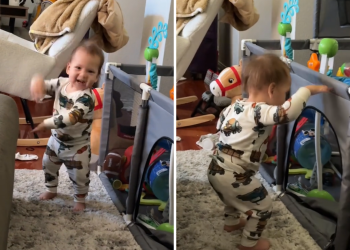Worried about the economy? You must not run a major bank.
A swath of the nation’s largest lenders, including JPMorgan Chase, Wells Fargo and Goldman Sachs, reported quarterly and annual financial results on Wednesday that beat analysts’ expectations, and largely expressed a go-go attitude about what’s ahead after President-elect Donald J. Trump is inaugurated next week.
JPMorgan, the nation’s biggest bank, said it earned $14 billion in profits in the fourth quarter, and nearly $59 billion for the full year. Wells Fargo made $5.1 billion in the fourth quarter and $20 billion for the year and said wealthy depositors were plowing more money into its higher-end savings products. Citi, which topped estimates, reported net income of $2.9 billion in the quarter and $12.7 billion for the full year.
Goldman Sachs, which saw fourth quarter profits of $4 billion and $14 billon for 2024, said it had particular success connecting risky companies looking for money to clients willing to lend it, typically a sign that credit conditions, as Wall Street puts it, remain fluid.
So good were the vibes that JPMorgan’s chief financial officer, Jeremy Barnum, in a briefing with reporters, cited an 89-year-old term from the economist John Maynard Keynes, remarking that there was “no question that we are in an ‘animal spirits’ moment right now.”
To some degree, Wednesday’s earnings results were not a surprise: Bank stocks rose even faster than the broader market in 2024, which ended the year up 23.3 percent, as lenders took advantage of a hot stock market and pickup in corporate financing activity to fatten profits. Shares rose further ahead of the market open.
Still, bankers traditionally cloak themselves as a risk-averse bunch, and given the questions about the future for interest rates, deal making and the geopolitical world, their optimism about what’s ahead is noteworthy.
It’s a deal
There’s nothing an investment banker likes more than an easy, enthusiastic environment for corporate-financing activities like mergers and acquisitions and initial public offerings. All the major banks that reported earnings on Wednesday said they saw boom times ahead.
Michael Santomassimo, Wells Fargo’s chief financial officer, said that the bank’s corporate clients largely viewed the incoming administration as business friendly and pro-growth, potentially a boon for deal-making.
“It feels like many of our clients, or many of the market participants, feel more confident in their ability to execute on M&A transactions,” Mr. Santomassimo said.
Already, Goldman Sachs was able to sell off some of what it calls “historical principal investments,” or assets that it is looking to unload, at a profit, the bank said.
California fires
The wildfires that have devastated Southern California will inevitably carry some toll to major lenders, which said they did not expect to lose too much money but were monitoring the crisis closely.
A Goldman Sachs spokesman said the bank was analyzing the fallout from the destruction of homes and office buildings. While mortgages tied to those properties should be insured, he noted, the insurance companies, which rely on financing from banks and others, could come under pressure.
JPMorgan sounded a similar note. “The analysis is being done building by building, mortgage by mortgage,” said its chief executive, Jamie Dimon.
JPMorgan said more than 20 of the bank’s employees had lost their homes.
Citi said the areas affected by the Los Angeles fires represented less than 3 percent of the bank’s residential mortgage portfolio, and that its overall real estate exposure did not appear to add up to much.
Questions remain
Although its stock rose nonetheless, Wells Fargo reported revenue that fell short of analysts’ expectations. Mr. Santomassimo pointed out that mortgage rates have remained relatively high, muting the bank’s big business of providing home loans.
Some consumers, especially those who are lower income, are struggling under the “cumulative impact of inflation,” Mr. Santomassimo said.
And despite the general good cheer among bankers for Mr. Trump’s return to the Oval Office, it fell to JPMorgan’s Mr. Barnum and Mr. Dimon to elucidate the possibility of a more melancholy economic future, describing “some tension.”
Mr. Dimon flagged deficit public spending — Mr. Trump has laid out big plans to expand various government programs — as a factor that could drive up inflation and prompt the Federal Reserve to raise interest rates, which could spook consumers and companies into a new retreat.
Citi’s corporate clients, though generally optimistic, are grappling with policy uncertainty, said its chief financial officer, Mark Mason. They’re considering how Mr. Trump’s proposed tariffs, immigration and tax policies could shape the economic landscape.
“All eyes are focused on the U.S. in a big way,” he said.




















